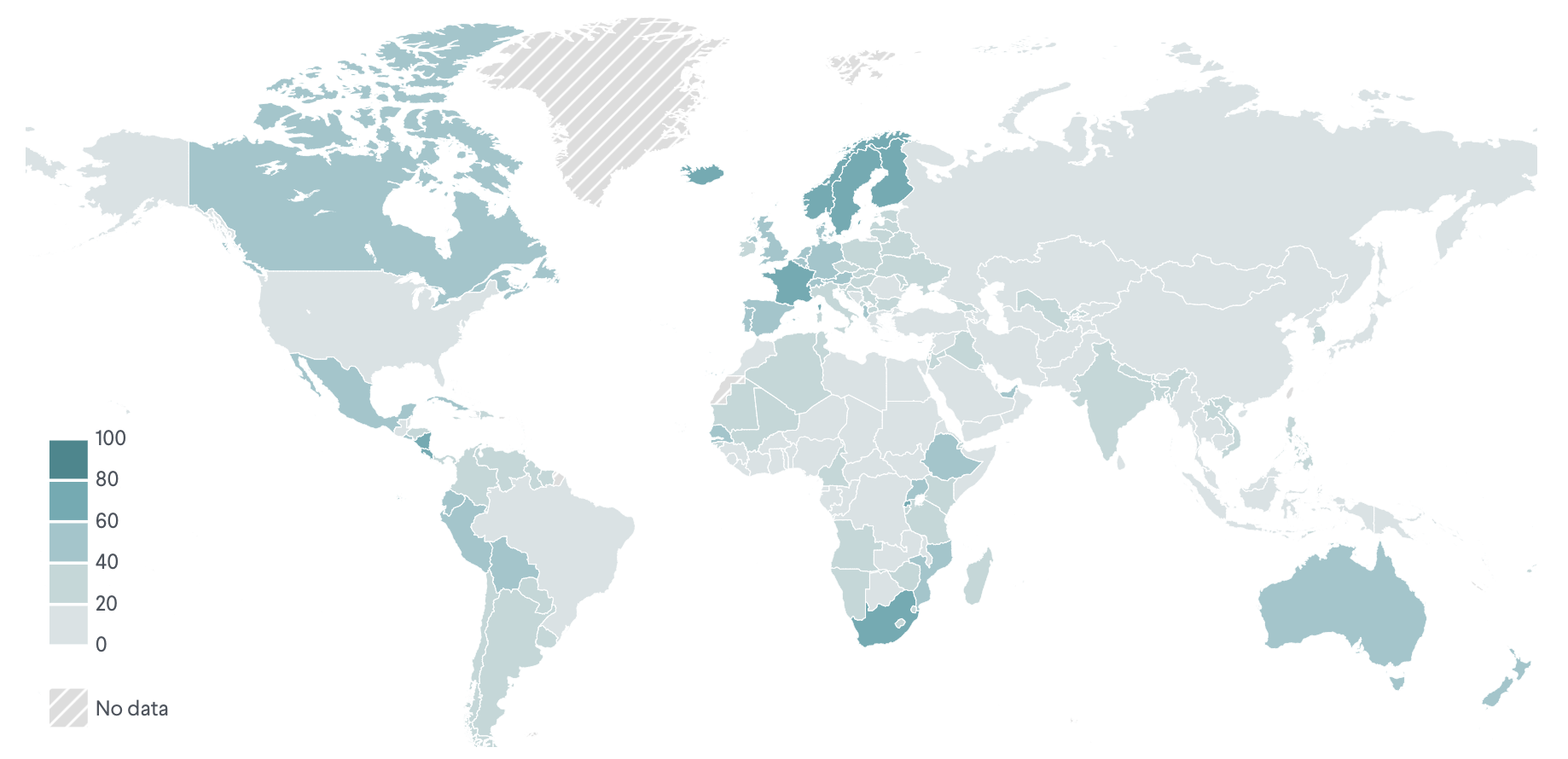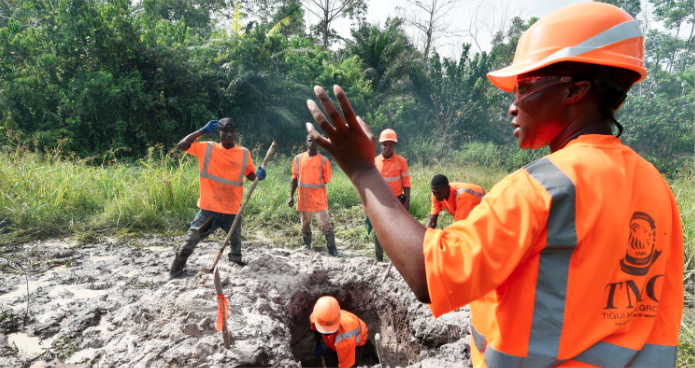Women from the Northern Ireland Women’s Coalition (NIWC) made up two of the twenty total negotiators to the Good Friday Agreement.
Civil society leaders supported a massive campaign that proved essential to the 1998 public referendum on the agreement. Local female leaders informed the NIWC’s negotiating positions through regular consultations, helping to ensure that the final agreement addressed community priorities to support their postconflict recovery.
Between the late 1960s and 1990s, in an era known as the Troubles, Northern Ireland experienced significant violence that pitted the historically dominant British Protestant unionists against the Irish Catholic nationalists. The 1997 peace talks offered Northern Ireland a chance to resolve the seemingly intractable conflict that had left over 3,600 dead and thousands more injured. The 1998 Good Friday, or Belfast, Agreement was signed by most of Northern Ireland’s political parties and was approved in a public referendum.
Women’s contributions to formal negotiations directly influenced the content and success of the 1998 Good Friday Agreement. The process for talks began in 1996 with public elections that allotted two seats to the peace negotiations to any valid political party—an unusual design that provided women’s groups an opportunity to gain formal access to the talks. Catholic and Protestant women’s groups led by Monica McWilliams and May Blood joined forces in a 1996 campaign that established the Northern Ireland Women’s Coalition as a political party that would hold two of twenty seats in formal negotiations. NIWC members hosted regular consultations with civil society organizations to inform their negotiating positions, and women helped to ensure the success of the peace process by serving as trusted intermediaries, advocating that the agreement include provisions to promote social cohesion after the conflict and campaigning for a public referendum.
Because women’s coalition leaders were respected as honest brokers who represented both communities, officials turned to them for help at critical moments in the process.
- Women
- Men
women
women
women
Women made a difference in the Northern Ireland peace efforts in four ways.
Worked across lines. Through the Northern Ireland Women’s Coalition, Catholic and Protestant women’s groups joined forces to establish one of ten political parties popularly elected to participate in the peace negotiations, and one of the few that worked across Catholic and Protestant communities.
Acted as honest brokers. Because women’s coalition leaders were respected as honest brokers who represented both communities, officials turned to them for help at critical moments in the process. They worked back channels to gauge opposing parties’ positions on critical issues, and, when the leading Irish Catholic party, Sinn Fein, was temporarily barred from the talks, the NIWC maintained communication with them and eased their reentry to the process.
Broadened the agenda. Women’s coalition leaders secured language in the 1998 Good Friday Agreement that specifically referenced victims’ rights and provided for reintegration of political prisoners, education, and mixed housing. These were issues that the main parties to the conflict had never brought forward but that ultimately proved to be fundamental to promoting social cohesion after the conflict and to sustaining peace.
Built public support. The women’s coalition set a precedent with its inclusive process of cross-community dialogue. Women’s coalition leaders held regular meetings with the general public to learn more about the needs and concerns of both the Catholic and Protestant communities and to relay updates on the peace talks. Helen Jackson, a member of the British parliament and observer at the negotiations, later reflected that the NIWC “gave a human face to the conflict, and highlighted the personal consequences of war.”
Ensured a successful public referendum. Drawing on the trust they had built through their public consultations throughout the process, women’s groups organized a massive civil society campaign that was essential to the 1998 approval of the peace agreement in a public referendum.
“Due to the enmity between the parties, the Women’s Coalition sought ways to achieve consensus in the tense atmosphere of negotiations . . . women’s perspectives, women’s agency, and particularly women’s ways of promoting peace do make a difference in conflict resolution, and conflict transformation.”
— Monica McWilliams, NIWC official delegate
Northern Ireland has enjoyed relative peace and economic growth since the 1998 agreement. The issues that the women’s coalition brought forward in the process, including education and mixed housing, had previously gone unaddressed by the main parties to the conflict but ultimately proved fundamental to promoting social cohesion and sustaining peace. Some divisive issues related to sectarian and national identity were left unresolved by the accord and contribute to occasional discontent and violence.
Although the final agreement included commitments to support women’s full and equal participation in society, women remain underrepresented in politics and in the economy. The women’s coalition was formally dissolved in 2006, and, almost twenty years after the Good Friday Agreement, only one woman has been appointed to a monitoring body for the peace process. “The diminution of women’s contribution to peace-building has meant a loss of the plurality and creativity that was so beneficial to the peace negotiations in the first place,” McWilliams observed.






